Only two of the six Lok Sabha berths in erstwhile Jammu and Kashmir state will have a black-and-white contest between BJP and Congress. The remaining four seats are anticipated to witness weird fragmentation and brutal contestation, a situation in which hazarding an outcome is risky, writes Masood Hussain
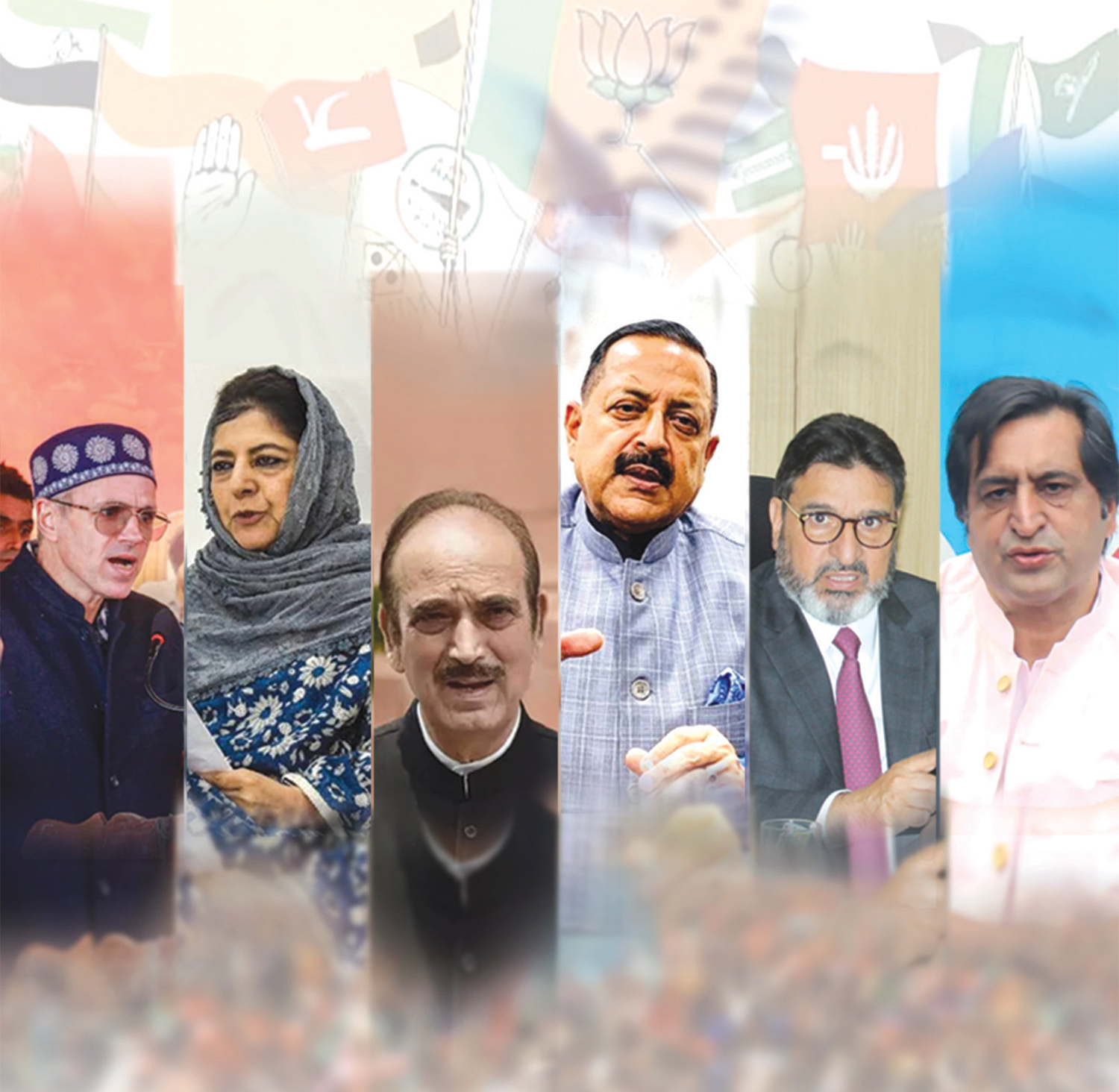
With Udhampur, the first of the five constituencies slated to go for Lok Sabha elections on April 19, the political class across Jammu and Kashmir has now decided how they intend to manage the voters they are expected to represent in the parliament of the world’s largest democracy. In Jammu, where the lone regional voice, the Jammu and Kashmir Panthers Party is slayed by infighting, the votes will bifurcate into two major national parties – the BJP and the Congress.
BJP has fielded its incumbent candidates – Dr Jitendra Singh (Udhampur) and Jugal Kishore Sharma (Jammu). Congress has fielded Raman Bala from Jammu and welcomed Choudhary Lal Singh to the party fold and given him a mandate to contest from Udhampur, a berth he has earlier represented.
In Kashmir, the contest is going to be very interesting as there are too many stakeholders – traditional and new, and every one of them is keen to have his pound of flesh. This compounded fracture of the political class will divide the vote in unpredictable ways and could help the BJP have a respectable harvest if not an outstanding victory. The build-up to this situation was already visible in the post-2019 Kashmir and is now formal and visible.
Two Groups
The political parties will take their own time to frame up their manifestos but one thing is already visible. The political class is divided into two groups – one that intends to fight BJP, and the other, is vocal about fighting the traditional parties, which are family-run. Traditional Kashmir parties, the Jammu and Kashmir National Conference (NC) and the Jammu and Kashmir Peoples’ Democratic Party (PDP) are clear that they wish to challenge the ruling BJP on the home turf.
Unlike Jammu, mainly the Hindu heartland, Kashmir has too many parties. The stakeholders include the NC, the PDP, the Peoples Conference and the two brand new parties, Jammu and Kashmir Apni Party led by business tycoon, Altaf Bukhari and Democratic Progressive Azad Party led by Ghulam Nabi Azad, who deserted Congress after almost half a century. Other smaller parties may end up supporting these formations in the upcoming elections.
A Broad Alliance
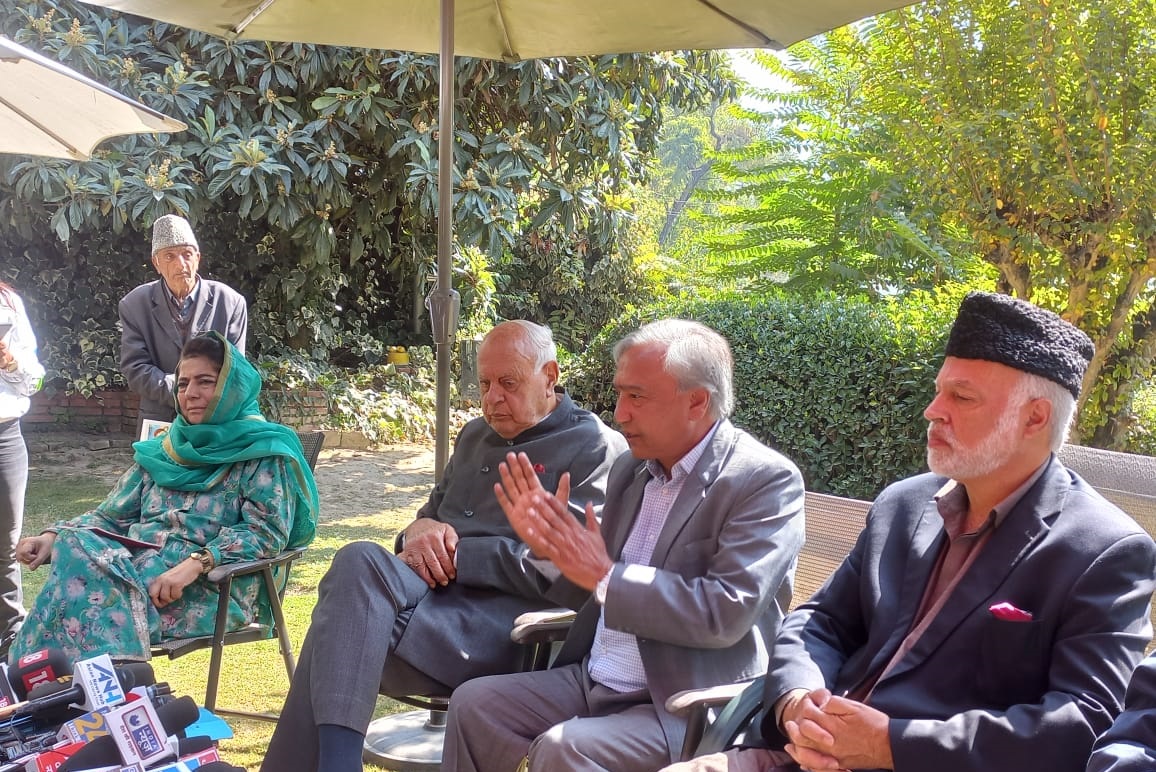
How the fracture in Kashmir’s political class got compounded is an interesting story. It started with an almost consensus in political class first during late 2018 when all excepting BJP and Peoples Conference (PC) jointly sought restoration of the government by supporting the candidature of Mehbooba Mufti. The then governor Satya Pal Malik had his fax machine not working so he could not receive the communication!! Later, in post-haste, he suspended the assembly. The major milestone was when the entire political class including PC came together hours ahead of August 5, 2019, and joined hands to defend the state and status of Jammu and Kashmir. Soon, they were in preventive custody as the BJP read down Article 370 and bifurcated the state into two federally governed Union Territories.
In early 2020, when the loose Gupkar Declaration parties formalised created an alliance and named it PAGD, it started crumbling under its weight. Congress was the first to dissociate from it. Soon, after the District Development Council (DDC) elections, the PC exited playing a key role in making PAGD. Its leaders visited Jammu and Ladakh and the outcome was restricted to photo-ops. Finally, it became an alliance of NC and PDP with CPIM and Awami National Conference also part of the photo frame. This alliance was never an electoral alliance as its mandate was restricted to restoring the pre-2019 status of Jammu and Kashmir. However, in DDC polls it contested as an alliance and emerged as the top gainer across Jammu and Kashmir despite serious issues within.
Both these parties, the NC and the PDP, joined the major national opposition INDIA alliance. A commoner expected that the two main parties would jointly contest the Lok Sabha polls. That did not happen at the last moment.
The National Conference
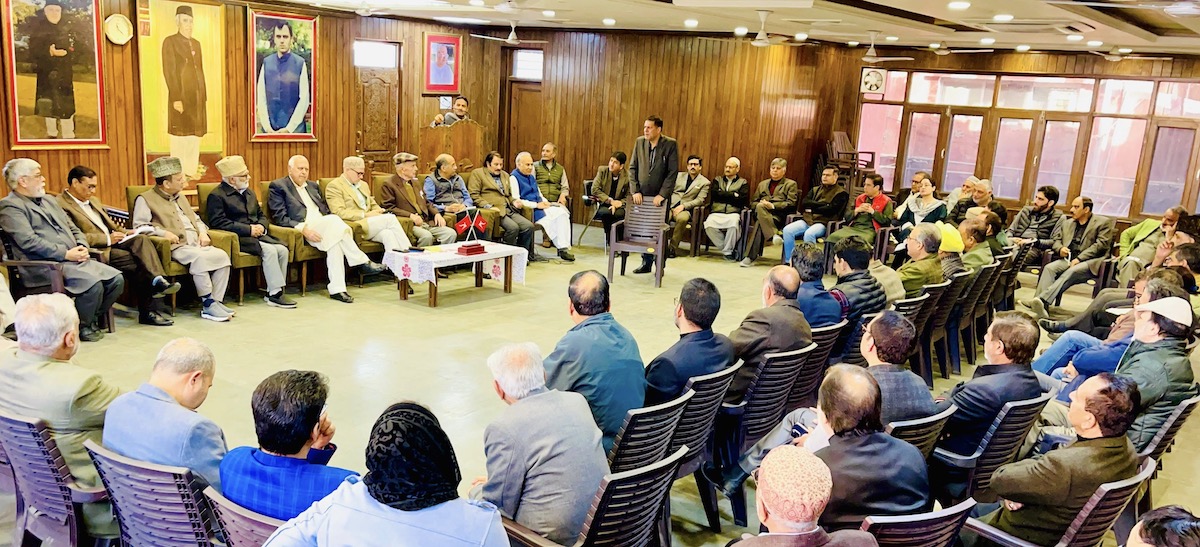
The NC, Kashmir’s oldest pan-Jammu and Kashmir political party and the major stakeholder insisted from the very first day that it will extend support to INDIA candidates in Jammu and Udhampur seats but will contest the three berths of Baramulla, Srinagar and Anantnag-Poonch. This left the PDP sulking. Even the top INDIA leaders intervened but could not salvage the situation between the two arch-rivals. There was a suggestion that three former Chief Ministers – Dr Farooq Abdullah, Omar Abdullah and Mehbooba Mufti should contest from a seat each in Kashmir.
The announcement of Mian Altaf Ahmad as the party’s candidate for the Anantnag-Poonch constituency finally sealed the fate of a possible joint front against the BJP. Mian Altaf, a third-generation politician, five-time lawmaker and a respected Gujjar leader from Kangan is a gentleman politician. Owing to the religious role the family has been playing for centuries, he has an impressive support base across Jammu and Kashmir especially along Gujjar and Bakerwal populations and sections within the Pahari and Kashmir-speaking population. His nomination by the NC is aimed at preventing a major population of the voters from supporting the BJP.
With Dr Farooq Abdullah, the incumbent MP from Srinagar and Jammu Kashmir’s five-time Chief Minister, out of race – owing to health reasons, the party is in serious discussions to identify its candidates for north Kashmir and central Kashmir constituencies. The party has already made it public that it will be extending all support to Congress candidates in Udhampur and Jammu instead of their support to its candidates in Kashmir. Besides, it will support Congress in Ladakh where the party has restored its impressive tally in Kargil.
The Peoples’ Democratic Party

The NC decision that it will go solo hit the PDP seriously. After Mian’s nomination was made public, Mehbooba Mufti talked to the media and regretted the NC decision. She said in the INDIA meeting, that she had proposed that Dr Farooq Abdullah would decide about the seat sharing. She said if she had been told by him to surrender all the five berths, she would have done it in the larger interests.
In the emerging situation, she said she is under pressure from her party workers that the PDP must contest on its own. She announced the party will contest the three Kashmir berths.
Insisting that her party has emerged as the main target of the government in the post-2019 situation, Mehbooba said they are down but not out. The party was deserted by hordes of its lawmakers and it was reduced numerically to a few. Almost 40 of its frontline leaders left and joined other parties. However, party insiders assert they will continue raising the people’s voices and move around for support in polls so that they are able to have a respectable share in the assembly elections. However, the party has not announced any candidate for any of the three Kashmir constituencies, so far.
The Peoples’ Conference
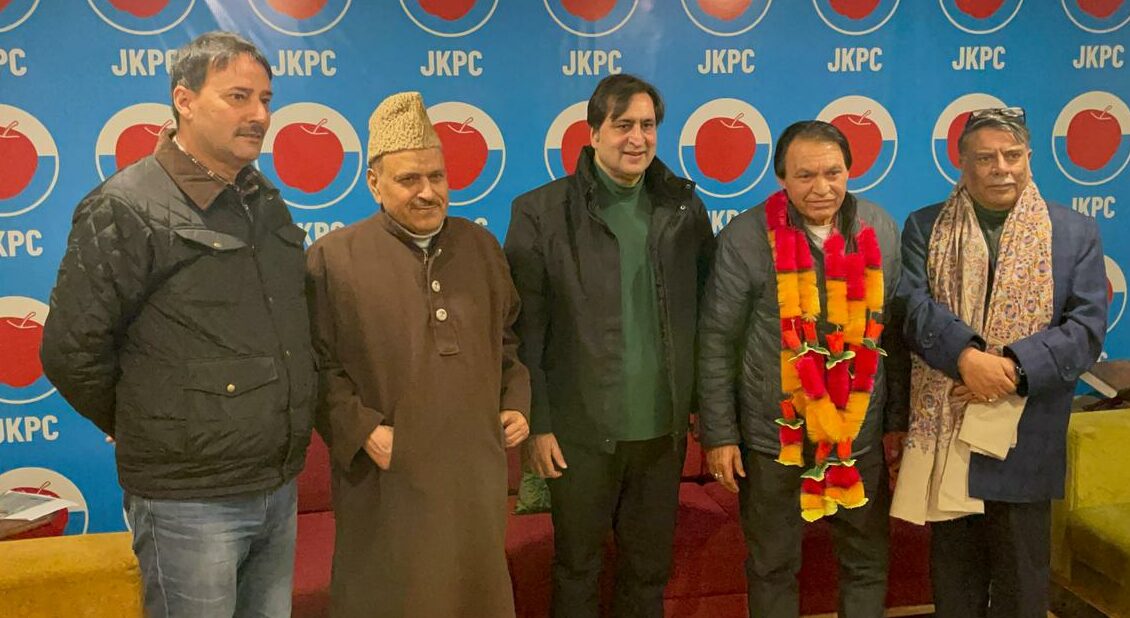
Led by Sajad Lone, the Peoples’ Conference is an old party that remained part of the separatist block for more than two decades till its founder Abdul Gani Lone was assassinated. Sajad revived the party and gradually got into mainstream politics. It had a representation in 2002 Mufti led PDP-Congress government and later in 2014 BJPDP coalition in which Sajad was a cabinet minister as a BJP ally. In 2018 when the Kashmir parties wanted restoration of the government, Satya Pal Malik – later claimed – Sajad was also a contender for the top slot. Post-2019, he was also in custody and had earned a lot of friends. He was later a spokesman of the PAGD but quit the alliance after the DDC polls.
Sajad was one of the many petitioners in the Supreme Court against the reading down of Article 370. Publicly he is highly critical of the decision but is usually not vocal against the BJP.
In the last few years, Sajad has been trying to build his party. Of many flocks that deserted PDP, he got his share from them and a few from Congress also joined him. Though his base is restricted to parts of north Kashmir, his ambition is to make the People’s Conference a pan-Kashmir party is the main driving force.
Though he contested the Lok Sabha polls twice unsuccessfully from north Kashmir, Sajad was the first to announce his candidature for the seat, this season. He is very active in Kupwara and is busy adding numbers to his party.
Once a huge admirer of Dr Farooq Abdullah – during his PAGD days, Sajad is hugely anti-NC. He sees the oldest Kashmir party as the mother of all sins and, recently, called for a formal case against the party for 1987 assembly election rigging, a landmark incident that changed the course of Kashmir’s history.
Jammu and Kashmir Apni Party
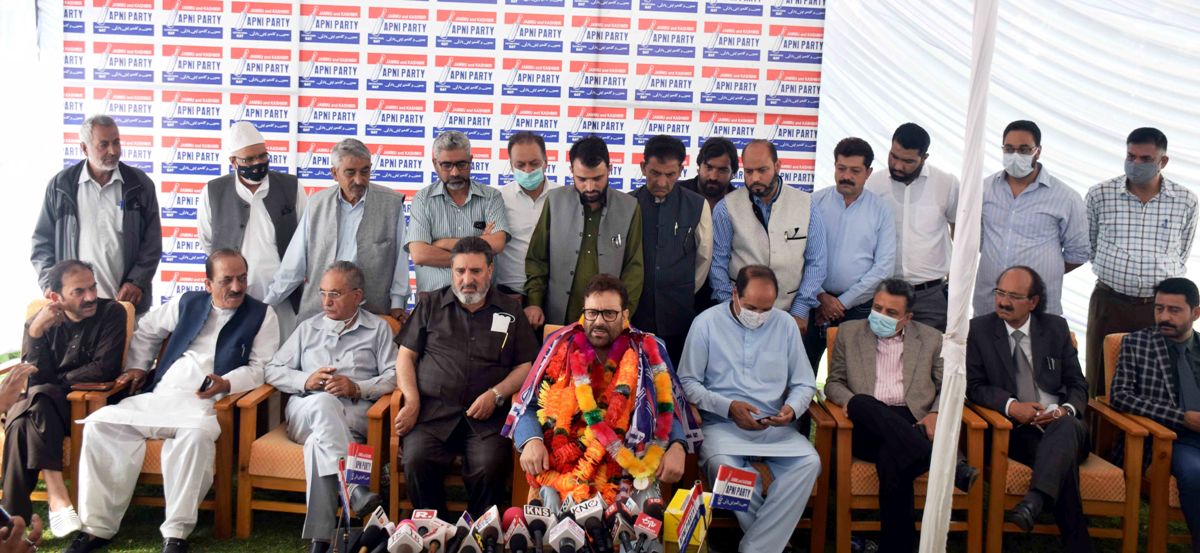
Founded by business tycoon, Altaf Bukhari, this is a brand-new party that came into being in post-2019 Kashmir. An erstwhile PDP treasurer and two-time minister, Bukhari floated his party with the help of his erstwhile PDP colleagues. Most of the desertions from the PDP landed in this party. He was the first political being who led a delegation of political beings to the Prime Minister at a time when the traditional political class was still trying to understand the new political landscape.
From the day he floated his party, Bukhari has been highly critical of the traditional political parties insisting they have misled the people throughout history. He regrets the loss of Article 370 but insists Jammu and Kashmir has a right to move forward. Bukhari has been consistently talking about the impossibility of turning clocks back and has been suggesting the traditional political parties against making promises they cannot deliver. He is a frequent visitor to Home Minister, Amit Shah, and has been publicly saying about how his party fought to secure the release of many innocent youth from incarceration. Off late, he has been asking the separatists to believe in the constitution and join him.
Initially, Bukhari was lukewarm to the Lok Sabha polls saying it hardly matters to Jammu and Kashmir, which gets five berths in a huge house where their voices are hardly being heard. The assembly election, he believed is the real thing that Jammu and Kashmir requires besides the restoration of the state status. His party was not a petitioner against the reading down of Article 370.
However, last week, the party surprised everybody when it announced the candidature of Zafar Iqbal Manhas for the Anantnag-Poonch LS seat and Mohammad Ashraf Mir for Srinagar. As far as north Kashmir Baramulla, Bukhari’s place of birth, the party did not announce any candidate.
The Democratic Progressive Azad Party
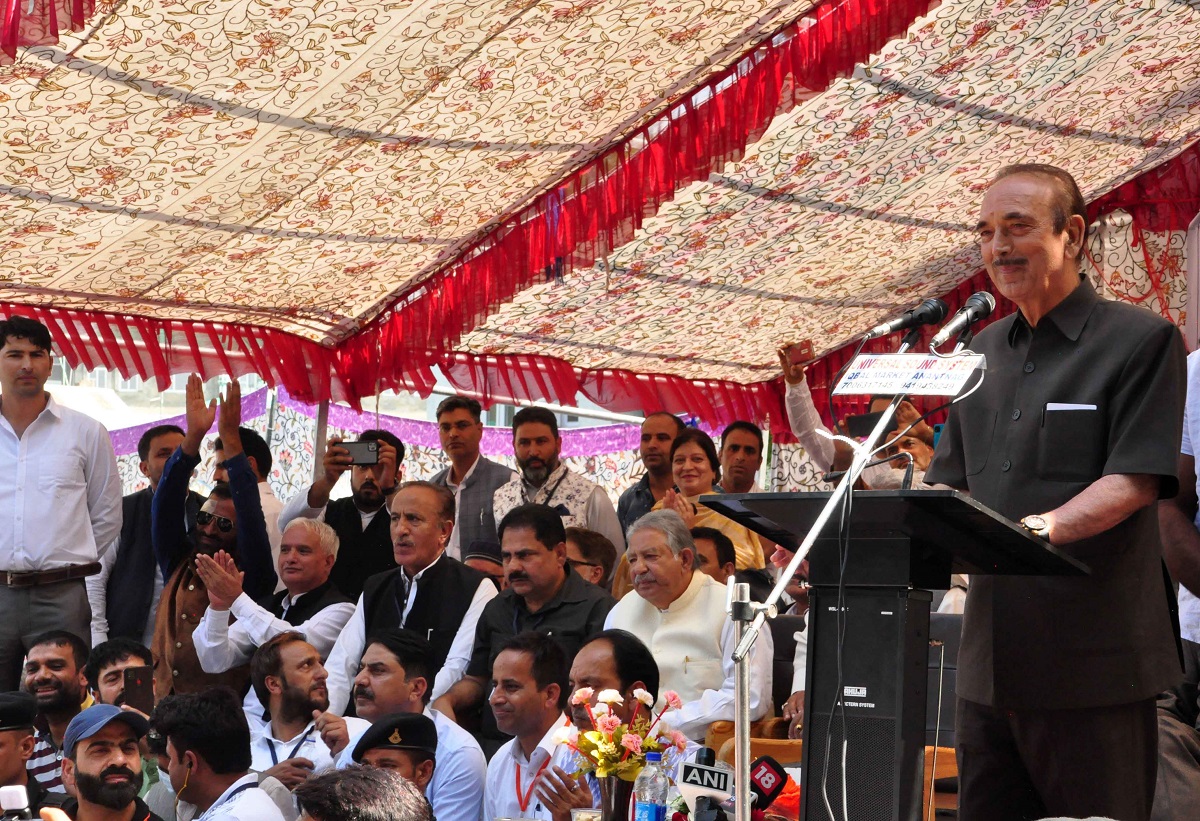
When the former Chief Minister Ghulam Nabi Azad quit the Congress after almost half a century, the expectation was that he may float a national party. However, he ended up adding a political party to Jammu and Kashmir. A veteran Congressman and a very powerful man in Delhi for decades, Azad won his first election from his home Bhaderwah constituency only after becoming the Chief Minister of Jammu and Kashmir, a victory he repeated later in 2008. In Lok Sabha, he ended up a runner-up in the 2014 polls, losing the seat by a low margin.
After floating his party, Azad literally dented the Congress by attracting all the major leaders in Jammu and Kashmir, a situation that was partly reversed later, before and after Rahul Gandhi’s yatra. Azad and Prime Minister, Narendra Modi have huge respect for each other. It was on display when Azad concluded his tenure as a Rajya Sabah member and the Prime Minister was in tears. Both of them have had a long relationship as Chief Ministers of the two states.
Azad’s focus is on restoration of statehood to Jammu and Kashmir and assembly elections. He has been talking about Article 370 as well. His key targets are Congress, NC and PDP. Off late, he has initiated a series of assaults on the NC, ignoring according to NC leaders, the immense support he would get from the party for staying in power in Delhi.
Very active and highly mobile, Azad has remained busy for these years and has visited almost every area across Jammu and Kashmir. However, his focus is on the parts of Jammu where Muslims constitute a sizable demography. The party fielded Ghulam Mohammad Saroori, Azad’s right-hand man, as its candidate for Udhampur constituency. On the Anantnag-Poonch seat, Azad is contesting personally.
Allies and Alliances
Of the six Lok Sabha seats in the erstwhile Jammu and Kashmir seats, only two berths will have a black-and-white contest – Jammu and Ladakh. In both these constituencies, it is BJP versus the rest led by Congress. In the remaining four berths having a majority community vote, a lot of grey matter is involved that is expected to make the situation very complex.
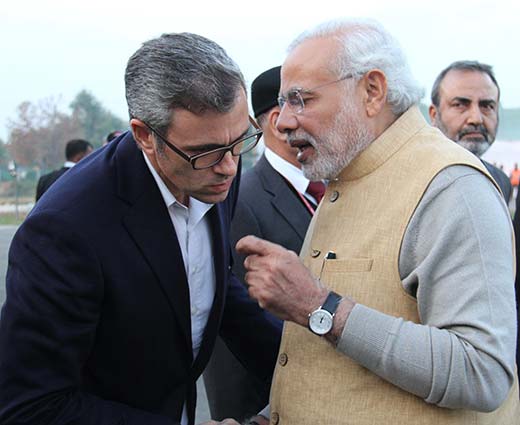 The NC and PDP failure in having a joint response is the key factor that will compound the fracture. Instead of expecting that they will contest as one, the situation suggests they will confront each other. This is anticipated to bleed the mandate. Everybody against everybody is making the situation highly unpredictable.
The NC and PDP failure in having a joint response is the key factor that will compound the fracture. Instead of expecting that they will contest as one, the situation suggests they will confront each other. This is anticipated to bleed the mandate. Everybody against everybody is making the situation highly unpredictable.
There is no alliance of any sort in sight. Earlier, there were efforts to have an alliance between Azad, Sajad and Bukhari but the initiative failed. Still, the political grapevine suggests the Apni Party may support the Peoples Conference in Baramulla.
However, tactical support is visible to the naked eye. In Udhampur, for instance, BJP’s Jitendra Singh is fighting an anti-incumbency and Congress’s Lal Singh is hurt and ambitious. The constituency has a huge Muslim vote. The black and white contest will get interesting as Saroori is expected to take a good share thus reducing margins for Lal Singh, who is otherwise facing the music for his support to the kidnapped, hostged, gang-raped and brutally murdered Kasana minor Bakerwal girl in 2018. Ghulam Nabi Azad lost this berth by 60,000 votes in 2014, even though the “secular” parties including PDP and others cut more than that by jumping in for tactical support to BJP.
In Baramulla, the contest could be very interesting if PDP and Engineer Rasheed jump into the fray. Rasheed is in jail and his party says he will file nominations while in incarceration. Right now, it seems to be Sajad versus NC.
While it is too early to anticipate anything about Srinagar – whose areas have changed phenomenally in the last delimitation, the contest in Anantnag-Rajouri-Poonch seat is going to be brutal. It has two faiths and four ethnicities (Gujjar, Pahari, Kashmiri and Hindu) and everybody is eyeing one part of the demography. BJP is keen to win the seat as it will vindicate the party’s “right” interventions in Kashmir. If Mehbooba joins the fray, another intricate element will add up.
Mian Altaf has a good following on either side of the Pir Panchal Mountain. Apni Party’s Manhas will take away a slice of Pahari from south Kashmir. Mehbooba or her candidate will take away the Kashmiri speaking part because her party has a better influence in the area. Before the BJP-dictated delimitation, this constituency was represented twice by Mehbooba Mufti and once by her father Mufti Mohammad Sayeed.
BJP is yet to announce the candidate and is watching the situation. It is banking on the Pahari population which is pleased over getting the reserved status and a 10 per cent stake in jobs, professional college admissions and promotions.
BJP In Focus
The contesting parties may take their time to frame up the talking points with which they will go the hustings after Eid. Right now, however, it is the BJP that is the common factor. The debate is about who is with the BJP and who is not.
The traditional Kashmir duo is accusing the others of being the creation of the BJP. They have talked in the A and B team language for a long time. This has created a debate about their relations with the right-wing party.
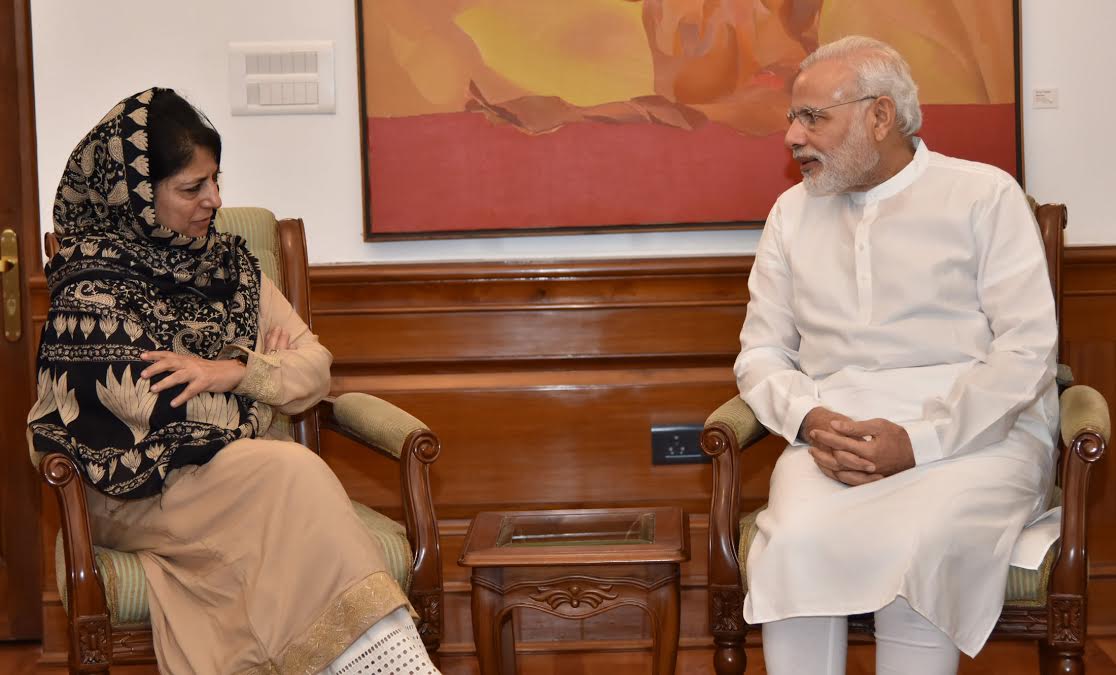
NC has been of the view that the creation of PDP, as an alternative to NC in Jammu and Kashmir, was somehow the handiwork of the BJP government in 1999. The party as the leader in the PDP-Congress alliance has a proverbial excellent relationship in the Vajpayee-led government and never faced any tension. In 2014, even as it successfully worked in creating a scare of the BJP’s mission 44 in Jammu and Kashmir, it eventually ended up in an alliance with the same party. The alliance fell under its weight and Kashmir changed a lot, perhaps forever.
Kashmir’s oldest party, the NC is not a stranger to BJP either. In Vajpayee’s 19-day rule when Saifuddin Soz voted against Vajpayee, going against the party whip, he was shown doors overnight. In the subsequent Vajpayee government, Omar Abdullah was the MEA’s poster boy and he enjoyed his stint. Even in 2014, NC leaders made a series of attempts to have a government with the BJP, an idea that fell flat by Mufti’s masterstroke.
Accusing each other of being pro-BJP may help garner votes but the fact remains that neither of the political forces in Jammu and Kashmir are strangers to the BJP. At different points in history, they all had good relations with the party. Right now, however, some are vocally unhappy over 2019 and some are silent on the issue. In Kashmir, political forces have remained deployed and redeployed strictly as per the wishes of the centre. NC being the oldest political formation has resisted the tide unlike others and that is a huge positive for the party.
It is too early to predict the outcome of the Lok Sabha polls, apparently a semi-final to the possible assembly elections later this year. However, the everybody-against-everybody offers a scenario that will fracture the vote bank and help the strongest to wrest the honours. At the same time, however, the BJP in this situation will have a respectable vote share, unlike past, even from Kashmir. Traditional political parties are vocal against the BJP but by fighting each other they will fetch the saffron party an edge. Parties supportive of the centre will help the party by slicing away their share. It is a situation in which almost every political force is working for the BJP, some in love of it and some in hate of it. BJP is non-committal and is enjoying the game.















